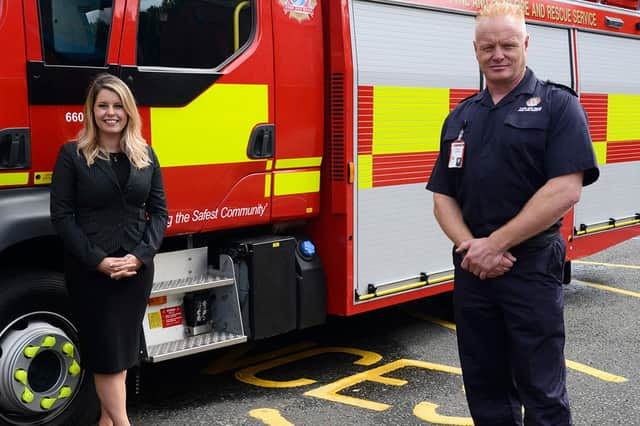KIM McGUINNESS: The burning issue of why we need more youth services


As I expected, this post-lockdown period is delivering a rise in anti-social behaviour, and colleagues at the fire service have told me fire related ASB incidents are also on the up. In fact, in Sunderland alone, fire-fighters attended 1953 incidents throughout lockdown and Covid restrictions – 550 were deliberate secondary fires.
From derelict buildings to dustbins, up they go in flames, deliberately, and taking away valuable resources from protecting lives. If we look at the bigger picture though, these figures come at a time when young people have experienced the upheaval of lockdown, a lack of school routine, exam results chaos and now the ever-growing threat of youth unemployment hitting an all-time high for our region. Playing with fire is often associated with drink, drugs and deprivation. Most kids who get up to trouble do so because they are bored. We know this because they tell us. They’ll say they simply have nothing better to do. So, we need to be putting a better option right there in front of them, giving them chances and choices.
Advertisement
Hide AdAdvertisement
Hide AdAfter years of austerity and the recent challenges brought by Covid-19, the ongoing battle to tackle ASB is only going to get tougher - especially if we don’t look at the causes and do something about them now.
It’s not about how many arrests are made or the amount of fires put out. Success for us is reducing the number of times people need to call our services for help. We want the communities we serve to be the safest they can be and education is key.
It’s about listening to and working with young people, finding out what’s going wrong in their lives and helping them to turn things around whether it be through sport, youth clubs or any place where they can meet positive, supportive role models and gain new skills and aspirations.
We know this approach works. My Violence Reduction Unit has seen some fantastic results through organisations such as the Foundation of Light, where young people have been presented with life-changing opportunities. But youth services come at a price. If we don’t invest early on we have to pick up the pieces later and I worry the Government is still yet to grasp this. Youth services are the real emergency service and it’s our young people we have to rescue before it’s too late.